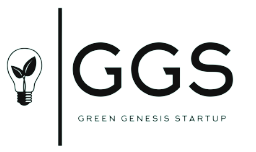
Aim of the case study
The aim of the Titan Cement Group case study is to highlight that even one of the biggest, well-known, and most profitable industries in Greece have marked a significant progress towards applying circular economy models in all of their products life cycle, and is developing synergies of circular economy with other industries, causing a positive impact.
The Titan Cement Group applies the principles of prevention, reduction, reuse, recycling, and recovery to minimize our waste and, at the same time, to use natural resources in our production process efficiently.
Examples of our contribution to the circular economy are
Use of waste and other industrial by-products as alternative raw materials and fuels in clinker, and cement production.
Use of concrete construction & demolition waste as an alternative for aggregates in cement, and concrete production, as concrete is 100% recyclable.
Use of concrete, a durable and resilient building material that offers improved resource efficiency during a building’s use phase.
Minimization of the waste produced by TITAN Group as part of everyday activities through its collection, storage, and disposal by authorized contractors for recovery, reuse, or recycling.
Furthermore, they participated in joint ventures that directly contributed to the circular economy. These include the GAEA Green Alternative Energy EAD, their Bulgaria-based joint venture with the Evolution Environmental Group, which works with local businesses to explore alternative fuels, waste management, waste use, and environmental protection. Meanwhile, STET, their Boston-based subsidiary, is the global leader in industrial tribo-electrostatic separation, which beneficiates fine particle materials like fly ash by-products. STET also develops and promotes waterless, energy-efficient, and low-emission technologies.
All these actions and initiatives indicate not only the national positive circular economy impact that this industry has provided to Greece but also the successful, so far, attempts to move these actions to a global scale.
Key Take-Aways
The critical take-aways of this case study are the following:
Aim of the implementation of these action in the industry is not only to act corporately, but most importantly to raise awareness to the final recipients of the products/services, the general public
The commitment to circular economy goes beyond the need for compliance, and should be a voluntary pledge of all industry sectors
Even the biggest, and most profitable businesses should devote capital for circular transformation, time, and effort for the staff training on this topic, and donations for the support of relevant actions
Even though the European legislation regarding circular economy has not yet been transfered to national level, with national laws as a total, many industries, and businesses take it as given, and act as if it was mandatory
Circular economy, and sustainability in general actions enhance the excellent reputation of businesses, which serve as role-models for society, and individuals, and provoke the sentiment of trust from the customers
